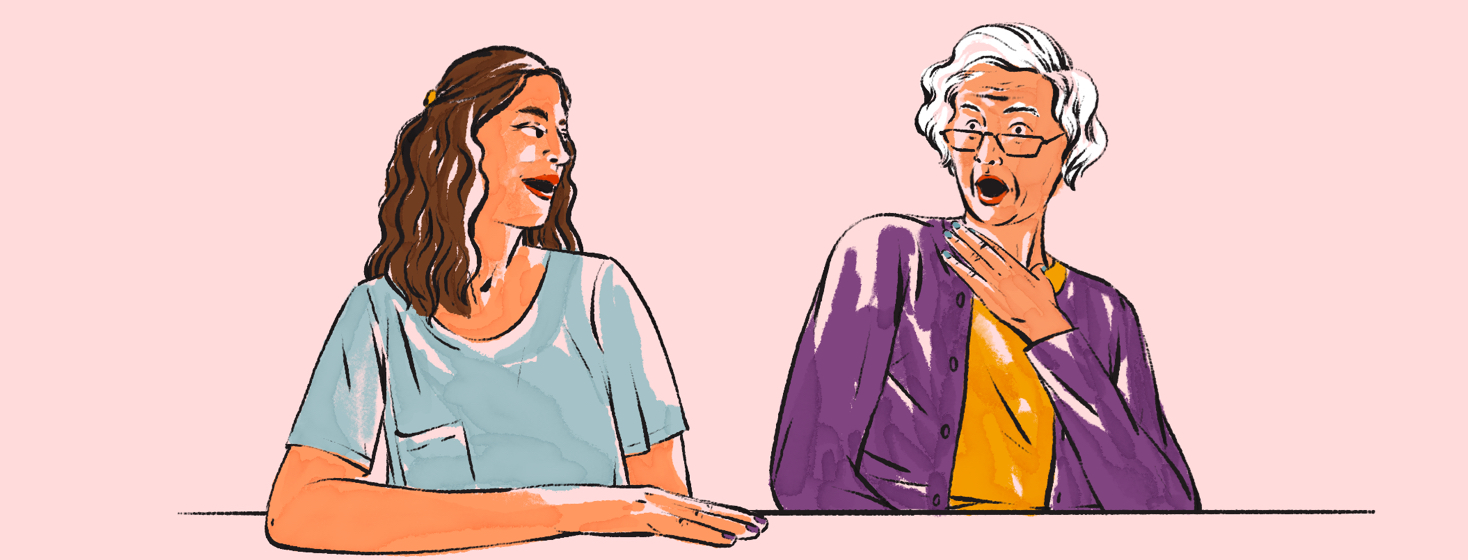The Awkwardness of Talking About Endometriosis
When I get a cold, I’m asked how I feel until I’m well again. When I get a migraine, I’m offered support and comfort until the pain passes.
But when I’m experiencing pain from endometriosis, I mostly hear crickets.
Not getting the support that I need
Because it’s a “female” disease, some of the men in my life can feel incredibly awkward asking about something they have little understanding about.
Because it’s a more “personal matter,” even the women in my life can feel that it’s crossing inappropriate boundaries to ask about it.
Because it’s a chronic illness, family and friends may feel redundant for asking, yet again, how I’m doing. The answer never seems to change, so why keep asking? They may think.
Here my fellow endo sisters and I are, living with a painful, chronic illness that can go unacknowledged and unsupported by our family, friends, and coworkers.
If you’re a person who likes to keep things private, this may be a significant relief to you. You don’t want people in your business like that, so you’re glad they don’t ask questions.
But if you’re someone who wants and needs the acknowledgment and support of those around you, this can be crushing.
No matter which side you fall on, there’s no right or wrong. What matters is that you’re getting what you need to physically, mentally, and emotionally support you through a painful chronic illness.
Feeling uncomfortable talking about my illness
So how do we ensure we get the support we need if the illness (that we didn’t choose to have) makes those around us “uncomfortable” to ask about?
The first question I ask myself in this situation is, what is my comfort level in talking about it to this person? If I’m uncomfortable talking about it, it will make others uncomfortable too. So I look to see if there’s anything that I’m doing to create this tone.
Honestly, the answer is different for each person in my life. I will naturally be more comfortable talking about it to some more than others.
That’s a good thing, in my opinion. But knowing this answer helps me best direct the conversation and know my desired outcome before going into the conversation.
What level of detail do I want to let this person in on, and what am I hoping to get out of this conversation?
For some people, I want to talk about the emotions I may be struggling with.
For others, I want help finding a solution for something – like my best friend helping me find a bathing suit that I’ll feel more confident wearing this summer or the best acupuncturist in the area known for pain management.
And for yet others, I simply want to feel seen for the extra effort that it is daily for me to get through a high pain day.
Learning how to communicate with others
How I approach each of these people, and my needs are very different. So, like many things in life, there is no one size fits all.
I think it starts with us feeling comfortable talking about it and helping the people in our lives to do the same.
Whomever you’re speaking with and to whatever level of detail, speak with confidence and clarity. You have a chronic illness you did not ask for or do anything to attract it. It’s hard work living with daily pain and discomfort.
The conversations you’re having with them are helping to normalize this topic and raise awareness for us all.
Please share below what helps you navigate these conversations with those in your life.

Join the conversation